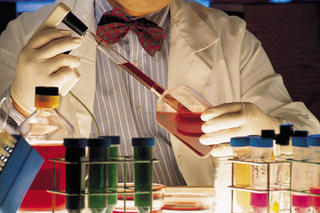This is an abstract from an article by Robert Nilsson, published in the journal "Risk Analysis", that scoffs at the "evidence" for "Passive Smoking".
Volume 21: Issue 4
Environmental Tobacco Smoke Revisited: The Reliability of the Data Used for Risk Assessment
Robert Nilsson
Abstract
Several epidemiological studies have found a weak, but consistent association between lung cancer in nonsmokers and exposure to environmental tobacco smoke (ETS). In addition, a purported link between such exposure and coronary heart disease (CHD) has been of major concern. Although it is biologically plausible that ETS has a contributory role in the induction of lung cancer in nonsmoking individuals, dose-response extrapolation—supported by the more solid database for active smokers—gives an additional risk for lung cancer risk that is more than one order of magnitude lower than that indicated by major positive epidemiological studies. The discrepancy between available epidemiological data and dosimetric estimates seems, to a major part, to reflect certain systematic biases in the former that are difficult to control by statistical analysis when dealing with risks of such low magnitudes. These include, most importantly, misclassification of smoking status, followed by inappropriate selection of controls, as well as certain confounding factors mainly related to lifestyle, and possibly also hereditary disposition. A significant part of an association between lung cancer and exposure to ETS would disappear, if, on the average, 1 patient out of 20 nonsmoking cases had failed to tell the interviewer that he had, in fact, recently stopped smoking. In the large International Agency for Research on Cancer (IARC) multicenter study even lower misclassification rates would abolish the weak, statistically nonsignificant associations that were found. In the former study an apparent significant protective effect from exposure to ETS in childhood with respect to lung cancer later in life was reported, a most surprising finding. The fact that the mutation spectrum of the p53 tumor suppressor gene in lung tumors of ETS-exposed nonsmokers generally differs from that found in tumors of active smokers lends additional support to the notion that the majority of tumors found in ETS-exposed nonsmokers have nothing to do with tobacco smoke. The one-sided preoccupation with ETS as a causative factor of lung cancer in nonsmokers may seriously hinder the elucidation of the multifactorial etiology of these tumors. Due to the high prevalence of cardiovascular disease in the population, even a modest causal association with ETS would, if valid, constitute a serious public health problem. By pooling data from 20 published studies on ETS and heart disease, some of which reported higher risks than is known to be caused by active smoking, a statistically significant association with spousal smoking is obtained. However, in most of these studies, many of the most common confounding risk factors were ignored and there appears to be insufficient evidence to support an association between exposure to ETS and CHD. Further, it seems highly improbable that exposure to a concentration of tobacco smoke at a level that is generally much less than 1% of that inhaled by a smoker could result in an excess risk for CHD that—as has been claimed—is some 30% to 50% of that found in active smokers. There are certainly valid reasons to limit exposure to ETS as well as to other air pollutants in places such as offices and homes in order to improve indoor air quality. This goal can be achieved, however, without the introduction of an extremist legislation based on a negligible risk of lung cancer as well as an unsupported and highly hypothetical risk for CHD.
Read More...











 How about these sticky labels from
How about these sticky labels from 

